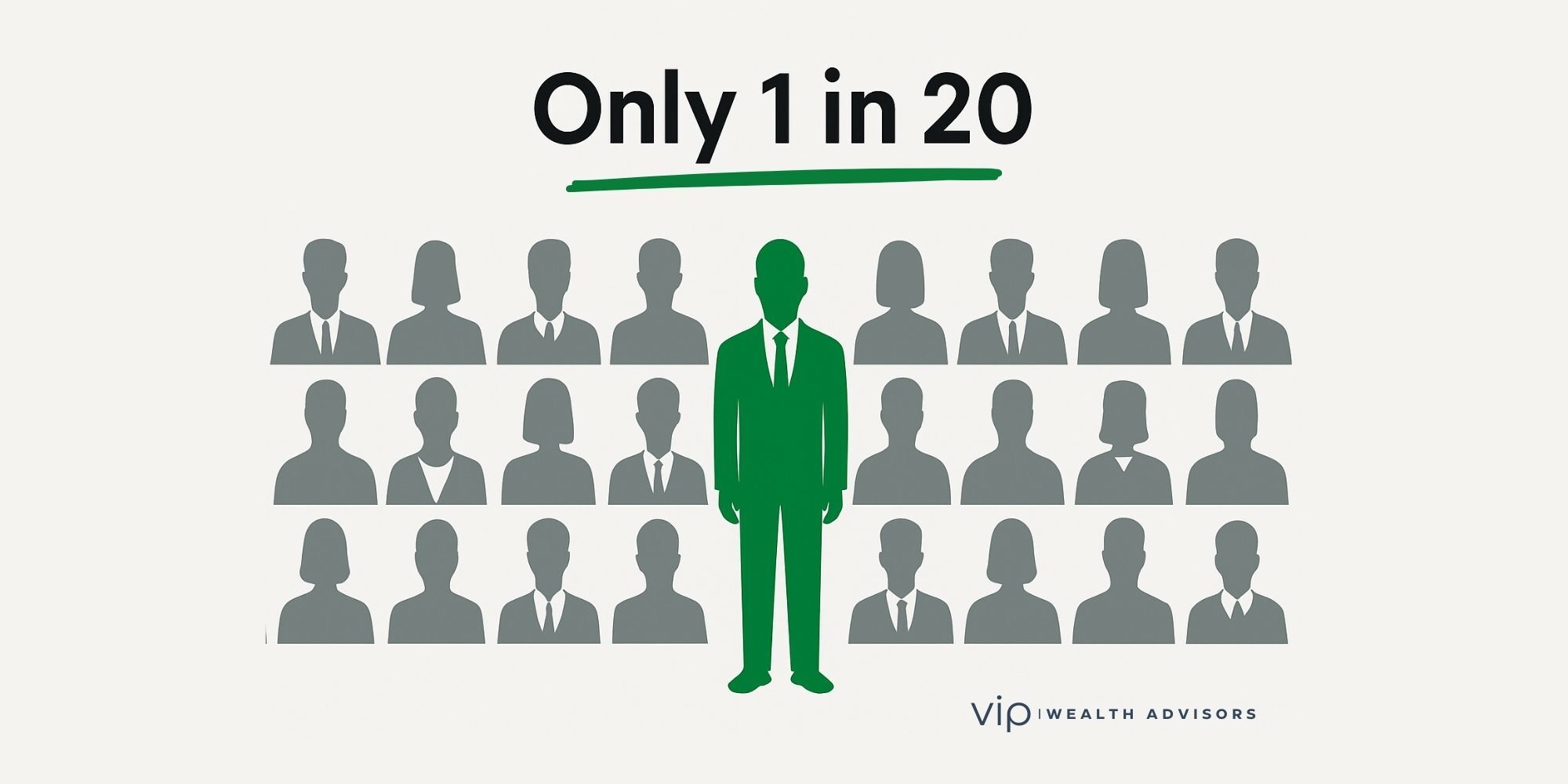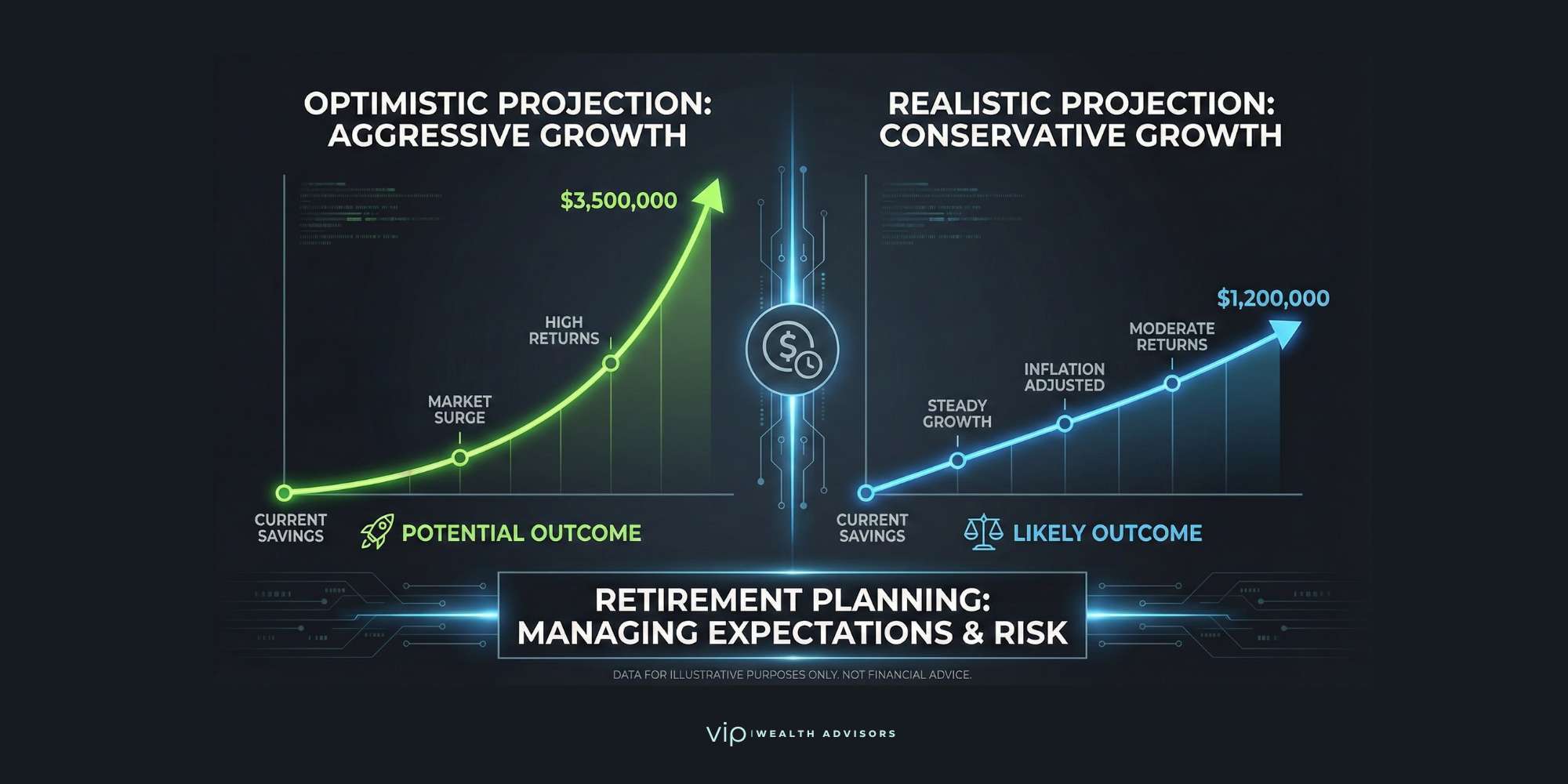The financial industry loves titles. "Advisor." "Planner." "Wealth Manager."
But when you peel back the layers, many of those labels are just camouflage for sales.
Here’s what the numbers actually show:
That's it. Out of hundreds of thousands, only a sliver has made the same commitment we have.
Why this matters
Most people assume their advisor is working only for them. The reality is, most advisors are paid—directly or indirectly—by the companies whose products they recommend. That creates conflicts of interest, plain and simple.
When you work with us, you don't have to wonder whose side we’re on. There are no product sales behind the curtain. No hidden incentives. Just advice that's 100% about you.
The rare 1%
321,000 advisors → Only 4,600 are NAPFA. VIP Wealth Advisors is one of them.
That's a stat worth sitting with. Because choosing the right advisor isn't just about investment returns or tax strategies—it's about trust. And trust comes from knowing your advice is uncompromised.
What does fee-only fiduciary mean?
Fee-only fiduciaries are paid only by clients, not by product providers. They avoid commissions and third-party incentives and are obligated to act in the client's best interest.
How is fee-only different from fee-based?
Fee-only advisors are compensated solely by client fees. Fee-based advisors may charge fees and also receive commissions on products, which can create conflicts of interest.
Why are so few advisors truly fee-only?
Many firms rely on product commissions or revenue sharing. Operating as fee-only removes those incentives and requires a business model built entirely around client fees and fiduciary duty.
How can I verify an advisor is fee-only and a fiduciary?
Ask directly if they accept any commissions or third-party compensation. Review Form ADV, check professional affiliations like NAPFA, and confirm in writing that they act as a fiduciary at all times.
What conflicts do commissions introduce?
Commissions and sales incentives can bias product recommendations. Fee-only compensation reduces those conflicts so advice is aligned with client goals, not product payouts.
What does being a NAPFA member indicate?
NAPFA membership indicates a commitment to a strict fee-only standard, fiduciary duty, continuing education, and a client-first code of ethics.
Why does the fee model matter for my outcomes?
Compensation influences incentives. A fee-only fiduciary model aligns advice with your interests, supporting cleaner planning decisions across investments, taxes, risk, and estate strategies.
🔎 Work with a True Fee-Only Fiduciary
At VIP Wealth Advisors, there are no commissions, no kickbacks, and no product quotas—ever. Just objective planning, tax-forward strategy, and long-term alignment with your goals.
If you're ready for uncompromised advice, let's talk.
📅 Book Your VIP Planning CallView More Articles by Topic
- Taxes (81)
- Financial Planning (46)
- Equity Compensation (38)
- Investments (30)
- RSU (23)
- Tax Policy & Legislation (19)
- Business Owner Planning (17)
- Incentive Stock Options (16)
- Retirement (16)
- Psychology of Money (15)
- Alternative Investments (13)
- AMT (9)
- Pre-IPO Planning (9)
- Real Estate (9)
- Estate Planning (8)
- Fiduciary Standard (8)
- Crypto (6)
- NSOs (6)
- The Boring Investment Strategy (6)
- Capital Gains Tax (5)
- Private Investments (5)
- QSBS (5)
- Market Insights (4)
- Post-IPO Tax Strategy (4)
- 401(k) Strategy (3)
- Market Timing (3)
- Q&A (3)
- Stock Market (3)
- Venture Capital (3)
- Altruist (2)
- Charitable Giving (2)
- ETF Taxes (2)
- IRA Strategy (2)
- International Financial Strategies (2)
- Irrevocable Trust (2)
- Legacy Wealth (2)
- Video (2)
- AUM vs Flat Fee (1)
- Atlanta (1)
- Book Review (1)
- Carried Interest Planning (1)
- Depreciation & Deductions (1)
- Education Planning (1)
- Energy Markets (1)
- Precious Metals (1)
- QTIP Trust (1)
- Revocable Trust (1)
- Risk Management (1)
- Schwab (1)
- Solo 401k (1)








